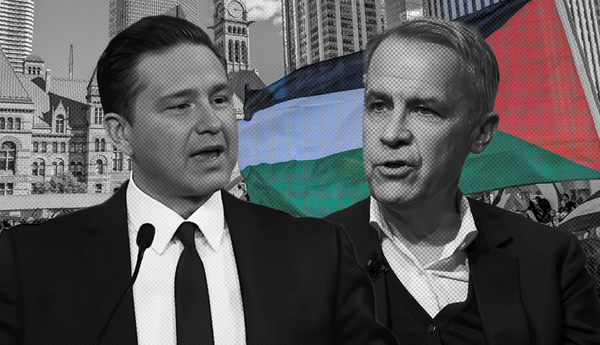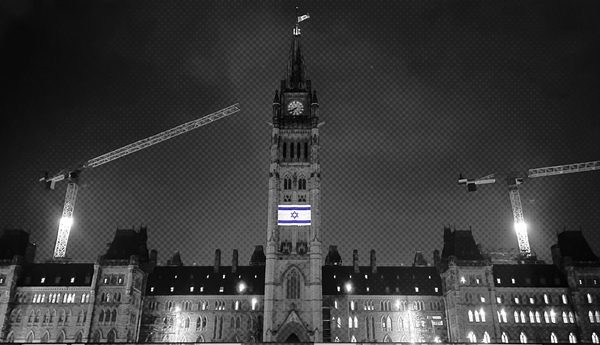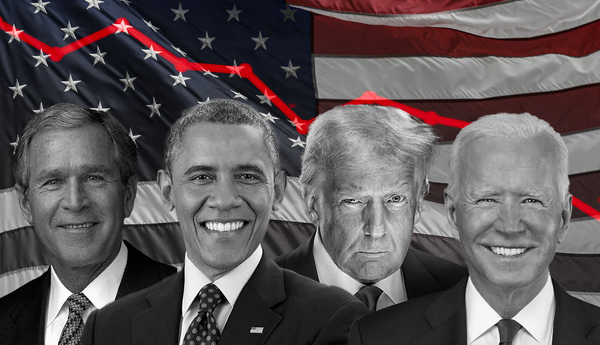It’s never about human rights, not really.
On Wednesday, Canada’s federal government announced it would be joining the United States, Australia and the United Kingdom in a diplomatic boycott of the upcoming Winter Olympics in Beijing. Prime Minister Justin Trudeau said the government is “extremely concerned” by the “repeated human rights violations carried out by the Chinese government,” so no government or diplomatic officials will be at the games, just the athletes.
One problem among many with this decision is that a government truly concerned with human rights would refuse to participate in any Olympic games. It’s not just that in some cases the event “sportswashes” the host countries — putting on a welcoming face to the world through sport to cover for domestic misdeeds — but that the event itself is rotten. The Olympics shouldn’t be regarded as something awarded to countries that supposedly respect human rights, but rather as an event that inherently brings human rights abuses with it, no matter where it’s held.
The list of human rights violations at the Olympics is a long one.
In 1968, students in Mexico City had for weeks been protesting against the Olympics being held in their country, with chants like, “We don’t want Olympics, we want revolution.” The situation culminated in a massive rally of tens of thousands, just days before the start of the games. It’s now thought a group of government snipers shot near their own troops, provoking massed soldiers to open fire on the protestors. The exact death toll is unknown, but is estimated to be about 300, with thousands more injuries. Ten days later, the opening ceremonies went ahead as normal.
Then there were the 1988 Seoul Olympics in South Korea, which The Nation writer Dave Zirin called a “horror show of torture, rape, slavery, and death.” In The New Republic, Sukjong Hong wrote that in the years leading up to the Olympics, the military dictatorship took “more than 16,000 unattended children, disabled people, panhandlers, homeless people, and dissidents” off the streets” and “locked them up in dozens of institutions without giving notice to their families. Thousands were raped, beaten, and killed during their imprisonment, while those who survived the violence toiled in factories or on construction sites all day for no pay.” In 2018, South Korea held the Olympics again, and still refused to look into these crimes.
Closer to home, we have the 2010 Vancouver Winter Olympics, where again the homeless were pushed off the streets by a massive police presence that cost more than $1 billion and included about 20 per cent of Canada’s entire policing capacity (about 6,000 officers), plus the military (about 4,500 troops.) This took place while officials said they’d work with community organizations to preserve civil rights, which those groups say didn’t happen.
Then there’s the corruption that funded the 2014 Sochi Winter Olympics in Russia, where hundreds of millions, perhaps billions, of dollars in contracts were given to friends and supporters of the ruling party. The event also resulted in negative environmental impacts, displacements and harassment of activists.
In Brazil, the state robbed more than 75,000 people of their homes in favelas through police and army violence in part to make way for venues for the 2016 Olympics in Rio de Janeiro. One in six of more than 1,500 killings by police a year before the Olympics opened were committed by on-duty officers as part of a “strategy of fear” in the poorer parts of Rio.
Wherever the Olympics go, misery follows.
On Wednesday, the Canadian Olympic and Paralympic committees said in a joint statement they “remain concerned about the issues in China but understand the Games will create an important platform to draw attention to them.” This neglects to mention, of course, that the games specifically punish protest, under the guise the Olympics aren’t supposed to be political, which is convenient given the history I’ve mentioned. It’s a “stick to sports” event, but on a grand scale.
In any case, the committees say, “History has shown that athlete boycotts only hurt athletes without creating meaningful change.” And here they give away what’s at stake: it might hurt the athletes. At the heart of it, what matters is the spectacle of athletes rising to face the very difficult challenges of riding an ice slide really fast, or going over a jump real cool. It’s about escape — escaping the moment, but also escaping the reality of the Olympics themselves.
And, of course, money. The issues with the Olympics are both a result of being, and subsequently ignored because they are, a very big business. Certainly big enough to overlook displacement, corruption and murder.
For the upcoming Olympics, for example, 10 of the top 12 sponsors of the Games had a combined revenue of $110 billion from China in 2020, according to a Bloomberg analysis. We’re talking about companies like Intel, Procter & Gamble, Coca-Cola and Toyota. In the Tokyo Olympics earlier this year, the U.S. network carrying the broadcasts pulled in more than $1.7 billion in ad revenue. There’s also the money from governments to build and run the games, which often runs into the tens of billions of dollars.
The International Olympic Committee has introduced “human rights” clauses into the contracts for future Games, starting with Paris 2024. Meanwhile, the pitch for the 2026 Olympics was the first to include human rights clauses in the bidding process. Yet these are limited private contracts that leave no ability for the people whose rights are trampled to gain any justice, but rather just give the IOC the ability to sue the hosts, if they choose to. It’s also not clear exactly what standard of human rights hosts might be held to.
Every Olympics will start off with a series of reports talking about the problems of the games. Stories of poor construction, police abuses and so on will be filed as reporters arrive on the ground. But once the opening ceremonies take place, and the Olympic torch is lit — the beloved torch relay in its specific current form was first used by the Nazis for the 1936 games, by the way — it’s all about sport and the glory of the athletes, while the rich get richer.
If Canada was truly concerned about human rights, it would be boycotting the Olympics, full stop. Instead, their current approach just helps to draw the lines of a new-age Cold War.






